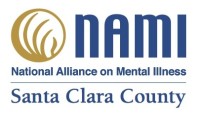A person with mental health challenges can become too disabled to work, and may then qualify for federal disability payments in the form of SSI and SSDI. Learn about SSI (Supplemental Security Income) and SSDI (Social Security Disability Insurance), and how to apply for these benefits when you have a mental health-related disability. Or, read the official Social Security Administration disability Red Book guide.
Topics covered here:
- What is SSDI
- What is SSI
- How to Apply for SSI or SSDI
- Tips on SSI/SSDI Applications and Appeals for Mental Disabilities
- SSI or SSDI Legal Aid
Click on the text bars below to know about each topics:
Social Security Disability Insurance (SSDI) provides monthly payments to people who have a disability that limits their ability to work. You may be eligible for SSDI if you are under 65, have a disability or blindness, and enough of a work history (you’ve earned a certain number of “work credits.”). After receiving SSDI for two years, you will become automatically eligible for Medicare.. The amount of the monthly benefit is based upon your earnings, much like Social Security retirement benefits. For more information, see the Social Security Disability web page.
(Back to Top)
Supplemental Security Income (SSI) is a need-based program, based on income and assets. To qualify for SSI disability, an adult or child must meet all of the following requirements:
- Have a disability, blindness, or be age 65 or older
- Have limited income
- Have limited resources
The monthly payment is based strictly on financial need and varies up to the maximum federal benefit rate. Some states add money to federal SSI payments. Approval for benefits generally takes three to six months. Once you are approved for SSI, you will get benefits retroactive to the date of your application. In most states, persons granted SSI are automatically eligible for Medicaid (called Medi-Cal in California). For more information on SSI, see the Social Security Supplemental Security Income (SSI) web page.
- Call Social Security at 1-800-772-1213, toll-free from 7AM to 7PM, Monday to Friday: , If you are deaf or hard of hearing, you can call us at TTY 1-800-325-0778.
- Apply online with Social Security
- Visit your local Social Security office. (Call first to make an appointment.)
Applying for SSI and SSDI can be difficult due to how long a claim can take and the high chance of being denied. Statistically, 70% of all SSDI and SSI claims are denied after the initial application. But applicants who are denied can and often should file an appeal. You do not have to give up if your initial claim is denied! To better your chances of winning your initial claim or your appeal, learn everything you can about the approval process. Here are two online information web sites that offer useful advice on SSI/SSDI:
- The consumer legal advice organization NOLO hosts a website called Disability Secrets, which states it “has information that is typically impossible to get from the representative taking your claim for SSDI and SSI benefits”. It can help to visit this site before submitting a disability claim, and certainly if you have been denied and wish to appeal.
- The Social Security Disability Resource Center, a web site authored by a former Disability Claims Representative, contains plenty of practical information and advice on all aspects of applying for SSI and SSDI, including a section on “Mental Disability Benefits“.
When you initially apply for SSI or SSDI, you may also choose to hire an attorney who specializes in disability law (disability lawyers should normally charge you only if you win your SSI or SSDI claim). If you are denied and wish to appeal, you can often get free legal assistance from non-profit legal aid organizations. If you are denied SSI or SSDI, or you believe your benefits have been unlawfully terminated, you can contact the following agencies:
Law Foundation of Silicon Valley – Health/Mental Health Program – Telephone: 408-280-2420
(phone intake hours: Mondays -Fridays, 1 pm – 4 pm)
Address: 152 North Third Street, 3rd Floor, San Jose, CA 95112
(Walk-in hours: Tuesdays and Thursdays, 1 pm – 4 pm)
Health/Mental Health Program provides free legal services to any individual who lives in Santa Clara County and who identifies as having a mental health or a developmental disability, or live with HIV/AIDS. Services available in Spanish and Vietnamese. The Mental Health Program can assist with public benefits, such as SSI/SSDI denials, overpayments and terminations.
Bay Area Legal Aid Economic Justice Project – Telephone: 800-551-5554
Represents individuals and families appealing unlawful terminations and wrongful denials of Supplemental Security Income, General Assistance, Food Stamps, In-Home Supportive Services, and also works to ensure that the CalWORKs program serves as a bridge to gainful employment.
(Back to Top)






